Hathaway spoke to Xpress about having an impact on the community’s health care, how the opioid epidemic affected him as a cardiologist and his excitement over becoming a grandparent.


Hathaway spoke to Xpress about having an impact on the community’s health care, how the opioid epidemic affected him as a cardiologist and his excitement over becoming a grandparent.

HCA declined repeated requests for the number of doctors who have left the Mission system since it took over in February 2019 and refuses to say how many doctors are on staff today, other than that the number is “relatively the same.” But Asheville Watchdog identified 223 doctors who appear to be no longer practicing there.
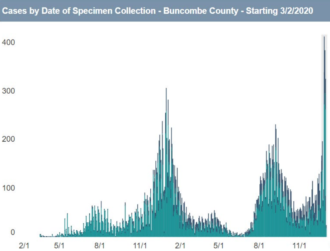
The Buncombe County Board of Commissioners members unanimously voted Jan. 4 to extend the county’s indoor mask mandate through Wednesday, Feb. 16. The extended mask requirement does not contain any language regarding enforcement, nor does it specify the type of face covering that residents should wear, despite health experts saying cloth masks are insufficient against the omicron variant of the coronavirus.
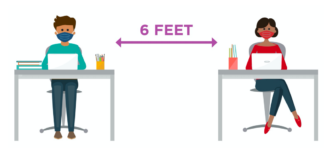
New policies from the N.C. Department of Health and Human Services and the N.C. Department of Public Instruction recommend all elementary schools open for in-person learning under Plan A, which does not require 6-foot social distancing between students and teachers. Middle and high schools are encouraged to reopen in-person under Plan B, which requires 6-foot social distancing at all times.
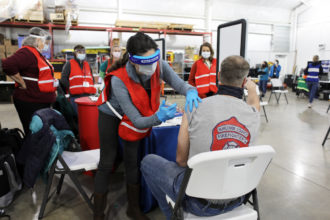
Of the 1,675 doses of COVID-19 vaccine Buncombe County had been allotted by North Carolina state officials through Dec. 28, the county had given just over 1,000 doses through Jan. 4. Only health care workers, first responders and long-term care facility residents will be able to receive the shot until Monday, Jan. 11.
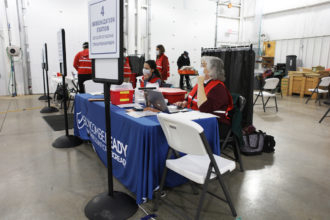
County health officials will move into phase 1b of the COVID-19 vaccination process the week of Monday, Jan. 11. But as the vaccine rollout gets underway, residents should prepare for limited availability.
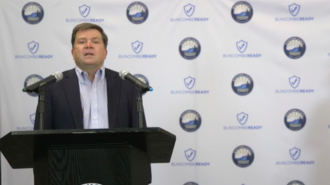
While there’s light at the end of the proverbial COVID-19 tunnel, Western North Carolina residents cannot let down their guard. Over the last week, the percent of positive COVID-19 tests has risen to 7.8% in Buncombe County; the county’s daily COVID-19 case counts now average 100 or higher.
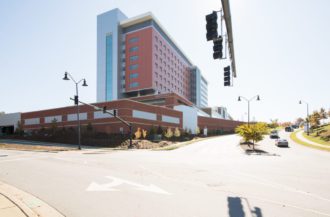
While beds and ventilators were a concern for hospitals early in the pandemic, officials now worry about having enough trained staff to handle the rising case load, and frontline workers cope with burnout.
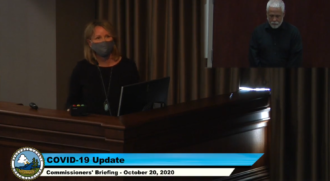
“People are out and about, sometimes with symptoms, putting people at risk,” said Stacie Saunders, Buncombe County’s public health director, during an Oct. 20 update to the county Board of Commissioners. “Folks are not adhering to the precautions like keeping 6 feet apart.”
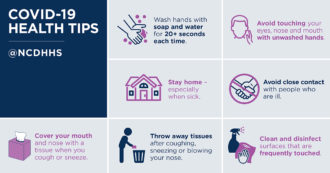
In the last week, Buncombe County’s percentage of positive tests has jumped from 2% to 4%. Although North Carolina’s statewide positivity rate hovers around 9%, the local increase indicates a rise in the coronavirus’ community prevalence.
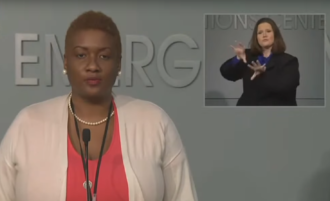
Noting that 34% of North Carolina’s 898 COVID-19 deaths through June 1 have been among African Americans, who make up roughly 22% of North Carolina’s population, NCDHHS Secretary Dr. Mandy Cohen emphasized that structural racism has created health disparities in black communities.

To date, 34 patients with COVID-19 have visited a Mission facility for treatment, said Dr. William Hathaway, the system’s chief medical officer, during a May 11 press conference. Two individuals with the coronavirus are currently receiving care at Mission, which he said has sufficient capacity of ventilators, personal protective equipment and intensive care beds.

Fletcher Tove, Buncombe County’s emergency preparedness coordinator said that a local mandate to shutter businesses and facilities that bring people into close, sustained contact — including gyms, pools, spas, hair salons and barber shops — is being developed and could be announced soon.
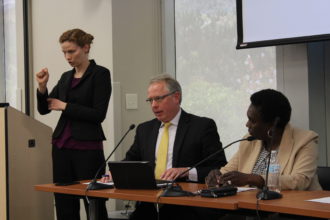
Buncombe County Board of Commissioners Chair Brownie Newman declared a local state of emergency due to the increasing number of cases of COVID-19 in North Carolina. The move followed a statewide emergency declaration from Gov. Roy Cooper just two days earlier. Mayor Esther Manheimer subsequently declared a state of emergency for the city of Asheville.